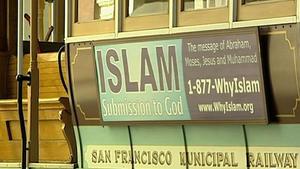A post-racial politics means being able to talk about race rather than ignoring it or pretending it doesn’t exist. The clearest indicator of a (non-white) politician’s approach to racial issues is their name. Consider that Barack Hussein Obama once went by the name “Barry” in his identity-confused youth, but took the oath of office as President of the United States using his full name. Obama has matured and grown comfortable in his identity and ethnic origins, and that confidence in himself and his heritage is part of his appeal.
What, then, of Bobby Jindal, the Republican answer to Obama and hailed as the rising star of the GOP? His response to Obama’s non-SOTU was widely seen as “weird” and invited comparisons to the gangly character Kenneth the Page on 30 Rock. The case can be made that the reason Jindal’s performance was off-putting was not because of racism (a card that conservatives seem as eager to play as liberals), but because Jindal seems uncomfortable in his own skin:
of course, he is Indian-American. It was only a matter of time
before race came into the picture. Christopher Orr of The New Republic
theorized that Americans can accept a nerdy black man, but not a nerdy
Indian because Indians were never cool anyway. Ann Althouse of the
University of Wisconsin Law School suggested yesterday that the
reaction to Jindal and his speech might be racist: “If there’s someone
of a different race, and you just have this gut feeling that
something’s not quite right, why are you so confident that it’s not
coming from racism?”But if we are uneasy with Bobby Jindal, it is not because we’re a
nation of racists, it’s because we are observing a man who seems to be
uneasy with his own race.While it hasn’t stopped him from taking campaign money from South
Asians–I attended an Indian-sponsored fundraiser in Los Angeles some
years ago when he was running for governor for the first time–Jindal
has downplayed his ethnic background throughout his political life. He
changed his Indian name during childhood and, against his father’s
wishes, he converted from Hinduism to Christianity. When the
Times-Picayune tried to go to India to cover his Punjabi roots, his
family did not cooperate. And on Sunday night, when Morley Safer asked
Jindal if he experienced racial tension growing up in Baton Rouge, the
governor responded, “Not at all. You know, this has been a great place
to grow up. The great thing about the people of Louisiana is that they
accept you based on who you are.” Safer pointed out this was hard to
believe in a state where 40% of the population voted for Ku Klux Klan
leader David Duke not so long ago. “We were raised as Americans. We
were raised as Louisianans,” said Jindal’s wife, Supriya when Safer
asked them both if they maintained Indian traditions in their home.
“Not too many,” they both agreed.…
“By changing his name from Piyush to Bobby and by converting from
Hinduism to Christianity, Jindal has repeatedly distanced himself from
his Indian ethnicity and his family’s Hindu faith,” says Varun Soni,
Dean of Religious Life at University of Southern California, and the
first Hindu dean of a major American University. “But now that Jindal
is being touted as the ‘Republican Obama,’ his identity as an
Indian-American may suddenly be politically advantageous.” Maybe this
is why Jindal awkwardly wedged in the canned comment about his family
“from a distant land,” and at least part of the reason he’s become the
golden boy in a party of white Christian men.So now the GOP wants to update his image, and, by association, their
own. With President Obama peppering race issues with elegant
introspection, Jindal suddenly has to answer questions about something
he has long glossed over. Perhaps this is the disconnect–the
weirdness–that people are sensing. There may be valid reasons why
Jindal has changed himself from Piyush into Bobby, but people can sense
the ambivalence, and that ambivalence was on full display last week in
his speech. In the Obama age, a brown man who cannot or will not
articulate his relationship to his heritage (aside from vague
platitudes about the American dream) makes Americans uneasy. Today,
transparency is touted as a virtue. But Bobby Jindal creates confusion
in the minds of Americans who watch him: they sense self-deception.
Now, I just lauded the fact that the muslim American community is among the most assimilated of religious groups. However that assimilation was not at the expense of religious or ethnic identity. It seems that Jindal has not just assimilated but has rejected his old ethnic identity outright. There isn’t anything wrong with this, though the sudden GOP embrace of his ethnicity reeks of tokenism. However, in comparison to Obama, the contrast is clear as day – for Obama, race and ethnicity are issues to be acknowledged and embraced, whereas for Jindal they are things to be denied. People noticed.

